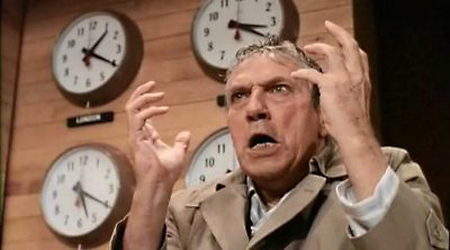 |
| "John the Baptist" Bartolome Estaban Murillo (1660) |
Repent, for the kingdom of heaven has come
near!” (Matthew 3:2)
I so
dig John the Baptist. You have to admit, he’s a pretty funky guy—right up there
with Jeremiah and Ezekiel in the list of prophets who were way far out in left field away from the mainstream, speaking
uncomfortable truth to complacent power. To say the very least, John is an
eccentric character. Just look at his primitive clothing and organic diet! But
sometimes we need someone who is very different in order to get our attention.
John’s a pretty important guy, too. We
could, I suppose, ask why God didn’t just send Jesus to us with all of his love
and healing. Wouldn’t the Savior be enough? Why did Jesus need an advance man?
I find the answer to that question every time I go outside my office into the
church Fellowship Room where the Alcoholics Anonymous meetings are held. There’s
a six-foot poster on one of the storage closet doors displaying the AA 12 Steps
in big black letters. Step 5 says, “(We) admitted to God, ourselves, and to
another human being the exact nature of our wrongs.” This is followed by Step 6
which reads, “(We) were entirely ready to have God remove these defects of
character.”
“Entirely ready.”
Yup. That sums us up. We aren’t going to
change or accept the possibility of change until we’re entirely ready. My guess
is that if Jesus just showed up doing his own thing, many people would never
give him a second thought. They wouldn’t be ready to be healed, or to have
their sins forgiven, or to begin loving their neighbors as themselves. They had
to acknowledge their need for Jesus
first. They had to know that their way wasn’t getting them the peace they were
starving for. They had to be entirely ready to say “bye-bye” to their old
assumptions.
So along comes John. He’s not the guy with
the temperament to give the peace which passes understanding. He is, however,
the guy who has the loud voice and is willing to wake folks up to the corruption
of their world, the errors of their thinking, and the truth that God has prepared
a way for them if they’re only willing to see it.
Who can play the role of John the Baptist
today? Personally, I like Senators Bernie Sanders and Elizabeth Warren. Old
Uncle Bern—you’ve got to admit—is as unconventional a hero as they come, yet he
was able to get millions of America’s young people mobilized against income
inequality. Sen. Warren has joined her voice to Sanders’ in waking us up to the
dangers of money in politics and the “financialization” of America—that is, the
concentration of capital into one sector of the economy while ignoring the
needs of millions.
Of course, this is just me being partisan
again. I sometimes imagine a modern-day John the Baptist to be like Howard
Beals, the fictional news anchor in the 1976 film classic Network. In Paddy Chayefsky’s satire of the television industry, an
aging newsman goes berserk on camera and calls for Americans to open their
windows and scream “I’m mad as hell, and I’m not going to take it anymore!” The
character of Beals goads his viewers out of their torpor of avoidance and
demands that they feel something
about the state of the world. Unfortunately, raw passion alone—without the
proper direction—soon reverts back into complacency. We can be ready to change,
but the change has to be towards Jesus.
 |
| Peter Finch as Howard Beals in "Network" (1976) |
So where is our passion today? Do you
think we’re really ready to receive Jesus? Or are we stuck in finding Black
Friday bargains, closing our borders and our minds, or just shutting off the
news and pretending that sin in our world just doesn’t exist?
How will people be ready to receive the Good
News Jesus has to deliver? Who will be the advance man?
Do you think it could be YOU?
God’s peace, my friends. Thanks again for
reading.
